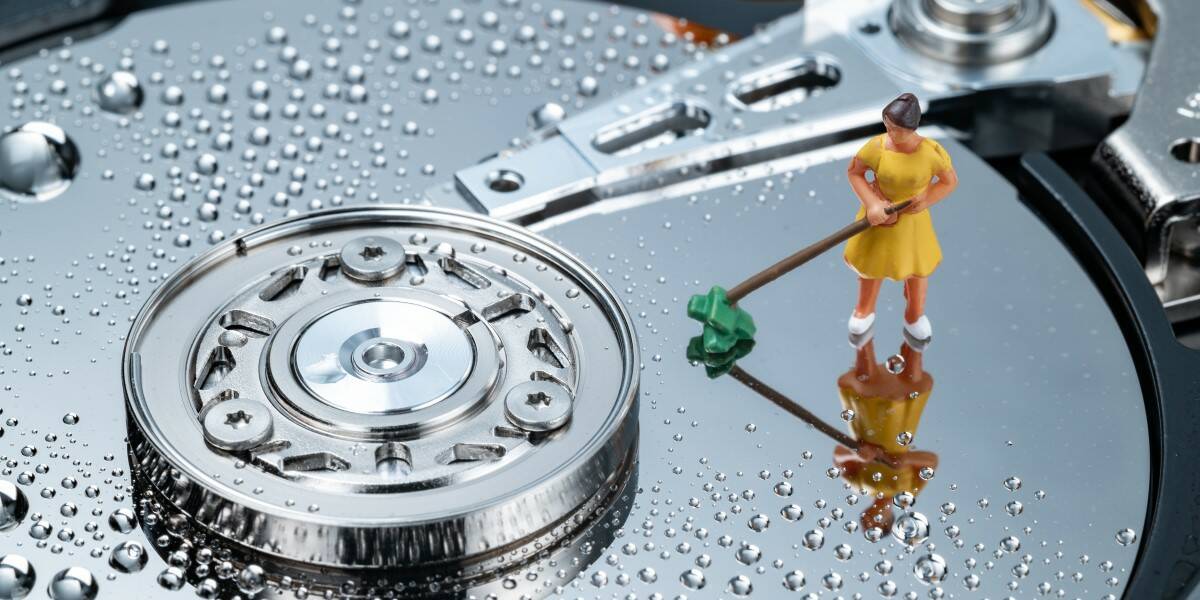Sysadmin's Favorite Collection Of Infallible Utilities Failed … Foully

who, me? Brace yourselves, gentle readers, for we have good news and bad news. The bad news is that the weekend is over, and you have to be back at work. The good news is that Monday brings an instalment of Who, Me? in which Reg readers entertain with tales of technical misfires.
This week, the hero of our tale is "Duke" (not his real name) who, despite dropping out of university, landed a job as a technician at a small PC shop. To give you an idea of the time period, "a Pentium 133 running Office 97 on Windows 95 was the height of business computing, but most of our business clients were still running DOS applications on '486 and earlier PCs" according to Duke.
One of the PC shop's regular clients was an architectural firm that would regularly send its PCs in for "servicing" – much as you would a car. But a PC isn't like a car – there's no published service schedule in the manual. So it was basically left to each tech to decide what to do. For most, this meant "manually running through a bunch of basic health checks, correcting any problems that might be found, and giving the case a wipe down with some industrial cleaning solvents to remove the nicotine stains and restore it to the original factory beige."
Duke would take it a bit further, "running scandisk (or chkdsk if it wasn't available) and accepting the inevitable repairs, making sure there was enough free disk space, emptying C:\TMP, defragging the disk and finally setting the antivirus to run a Full Disk Scan." Crucially, if any of those tools weren't installed on the machines, he'd grab a boot disk from the workshop and run it.
Defragging isn't a big deal anymore – partly because OSes have got much better at disk management and partly because disks are so fast these days that a bit of fragmentation doesn't create the performance hit it once did. But in those days, defragging a disk could make a huge difference, so customers felt like they were getting great value for their service dollar.
One day the architects brought in the server that ran their accounting app for service. As far as Duke could see it was just like any other PC – even the interface looked just like Windows 3.1. He tried to run defrag.exe on it, but it refused to run. So he booted up from his trusty floppy and ran it.
He saw the single most fragmented disk he'd ever seen in his life. Where PCs often came back saying they were ten percent fragmented, this machine was beyond 50 percent fragged. Duke told the utility to fix the disk and headed off to lunch.
- IT sent the intern to sort out the nasty VP who was too important to bother with backups
- Why have just one firewall when you can fire all the walls?
- Bright spark techie knew the drill and used it to install a power line, but couldn't outsmart an odd electrician
- Shock horror – and there goes the network neighborhood
Some of you will already have figured out Duke's error here. This was a server, after all, and just because it looked like Windows 3.1 that didn't mean it was Windows 3.1.
It was, in fact, Windows NT 3.5. And the reason his usual defragging tool didn't want to run was because defrag.exe was written for the FAT file system that underpinned DOS, which in turn underpinned Windows 3.1. This machine was using NTFS.
So when Duke returned from lunch to find that the defragger had finished its task, he tested the machine and found that – surprise, surprise – it would not boot. There was only the plaintive error: "Operating System Not Found."
Duke's decision to defragment the hard drive had employed a tool that knew nothing about how NTFS liked to store files. He had, therefore, tossed the contents of the server's drive as if it were a data-based salad from Hell. It was completely scrambled and unrecoverable.
Thankfully, the customer had kept a full set of very recent backups (as you might expect from a firm that sends its PCs off for regular service) and the boss (who knew less about NT than Duke did) forgave the error. Duke gained some valuable experience and a doozy of a "what was the worst mistake you ever made" anecdote to whip out at job interviews.
What's your go-to "worst mistake" anecdote for job interviews? Share the wealth of your experience in an email to Who, Me? and enrich the lives of your fellow readers on some future Monday morn. ®
From Chip War To Cloud War: The Next Frontier In Global Tech Competition
The global chip war, characterized by intense competition among nations and corporations for supremacy in semiconductor ... Read more
The High Stakes Of Tech Regulation: Security Risks And Market Dynamics
The influence of tech giants in the global economy continues to grow, raising crucial questions about how to balance sec... Read more
The Tyranny Of Instagram Interiors: Why It's Time To Break Free From Algorithm-Driven Aesthetics
Instagram has become a dominant force in shaping interior design trends, offering a seemingly endless stream of inspirat... Read more
The Data Crunch In AI: Strategies For Sustainability
Exploring solutions to the imminent exhaustion of internet data for AI training.As the artificial intelligence (AI) indu... Read more
Google Abandons Four-Year Effort To Remove Cookies From Chrome Browser
After four years of dedicated effort, Google has decided to abandon its plan to remove third-party cookies from its Chro... Read more
LinkedIn Embraces AI And Gamification To Drive User Engagement And Revenue
In an effort to tackle slowing revenue growth and enhance user engagement, LinkedIn is turning to artificial intelligenc... Read more

